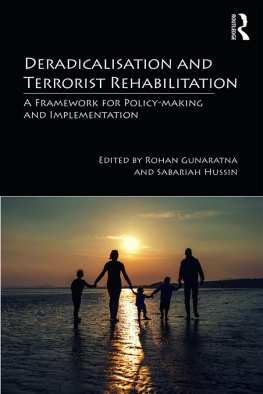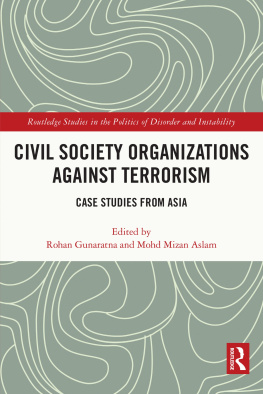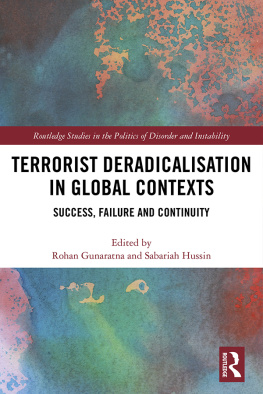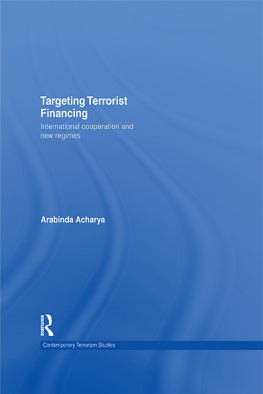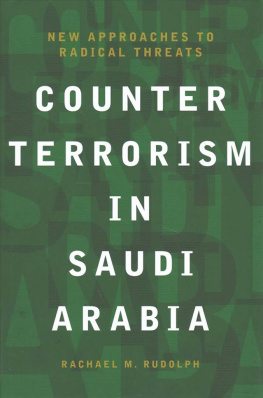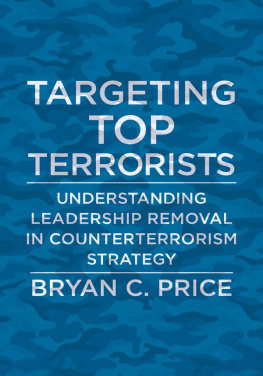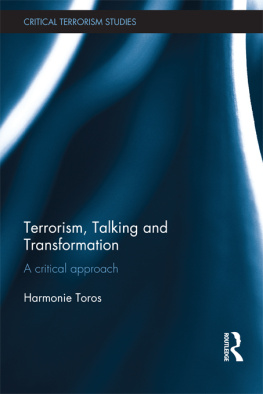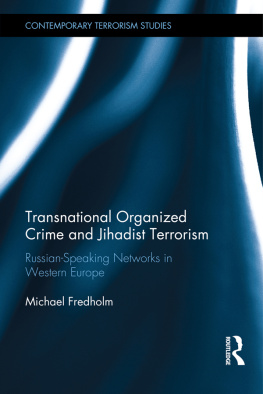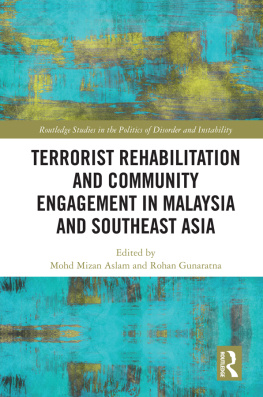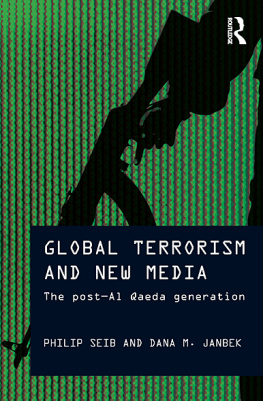Deradicalisation and Terrorist Rehabilitation
The threat of terrorism, if not adequately managed, is likely to increase exponentially. As terrorist groups influence and networks spread globally, a concerted effort in counterterrorism strategy is critical to mitigating the threat they present. Governments facing the threat of terrorism are typically strengthening their law enforcement, military and intelligence capabilities, but more complex initiatives such as deradicalisation and terrorist rehabilitation are more time-consuming and less attention-grabbing and so tend to be neglected. It is all too easy to do rehabilitation ineffectively or to simply ignore it altogether. This is unfortunate, as an effective rehabilitation strategy can yield dividends over the longer term. Every committed terrorist is a potential recruiter, whether in prison or at liberty, for more terrorists. Even in death, they can potentially be presented as martyrs. Conversely, successfully rehabilitated terrorists can be valuable assets in the public relations theatre of battle.
There is no single, simple solution to the challenges of deradicalisation and rehabilitation, but this book places examples of best practice within a robust but flexible, conceptual framework. It gives guidelines for establishing and implementing a successful deradicalisation or rehabilitation programme, derived from a series of empirical case studies of successful projects around the world. It sets out both the necessary and desirable facets of such a programme, identifying which areas to prioritise and where budgets can be best spent if resources are tight. The authors provide detailed case studies of each step to illustrate an approach that has worked and how best to replicate this success.
Rohan Gunaratna is Professor of Security Studies and Head of the International Centre for Political Violence and Terrorism Research, S. Rajaratnam School of International Studies, Nanyang Technological University, Singapore.
Sabariah Hussin is a Research Analyst at the International Centre for Political Violence and Terrorism Research, S. Rajaratnam School of International Studies, Nanyang Technological University, Singapore.
Routledge Studies in the Politics of Disorder and Instability
This series brings together research on issues involving dissent, disorder, rebellion, revolution and governability at national, regional and comparative levels. Focusing on the political, social and economic causes of these phenomena and analysing case studies from around the world. It aims to develop our understanding of both the details of individual examples and the common characteristics of international trends.
Rebel Recruitment and Information Problems
Kazuhiro Obayashi
International Case Studies of Terrorist Rehabilitation
Edited by Rohan Gunaratna and Sabariah Hussin
Deradicalisation and Terrorist Rehabilitation
A framework for policy-making and implementation
Edited by Rohan Gunaratna and Sabariah Hussin
For the full list of titles in this series, please visit www.routledge.com/Routledge-Studies-in-the-Politics-of-Disorder-and-Instability/book-series/RSPDI
Deradicalisation and
Terrorist Rehabilitation
A Framework for Policy-making
and Implementation
Edited by Rohan Gunaratna and
Sabariah Hussin
First published 2019
by Routledge
2 Park Square, Milton Park, Abingdon, Oxon OX14 4RN
and by Routledge
711 Third Avenue, New York, NY 10017
Routledge is an imprint of the Taylor & Francis Group, an informa business
2019 selection and editorial matter, Rohan Gunaratna and Sabariah Hussin; individual chapters, the contributors
The right of Rohan Gunaratna and Sabariah Hussin to be identified as the authors of the editorial material, and of the authors for their individual chapters, has been asserted in accordance with sections 77 and 78 of the Copyright, Designs and Patents Act 1988.
All rights reserved. No part of this book may be reprinted or reproduced or utilised in any form or by any electronic, mechanical, or other means, now known or hereafter invented, including photocopying and recording, or in any information storage or retrieval system, without permission in writing from the publishers.
Trademark notice : Product or corporate names may be trademarks or registered trademarks, and are used only for identification and explanation without intent to infringe.
British Library Cataloguing-in-Publication Data
A catalogue record for this book is available from the British Library
Library of Congress Cataloging-in-Publication Data
Names: Gunaratna, Rohan, 1961- editor. | Sabariah Hussin, editor.
Title: Deradicalisation and terrorist rehabilitation : a framework for policy-making and implementation / edited by Rohan Gunaratna and Sabariah Hussin.
Description: Abingdon, Oxon ; New York, NY : Routledge, 2018. | Series: Routledge studies in the politics of disorder and instability | Includes bibliographical references and index.
Identifiers: LCCN 2018018187| ISBN 9781138602519 (hbk) | ISBN 9780429469534 (ebk) | ISBN 9781138602526 (pbk)
Subjects: LCSH: TerrorismPrevention. | TerroristsRehabilitation.
Classification: LCC HV6431 .D4657 2018 | DDC 363.325/17dc23
LC record available at https://lccn.loc.gov/2018018187
ISBN: 9781138602519 (hbk)
ISBN: 9781138602526 (pbk)
ISBN: 9780429469534 (ebk)
Typeset in Galliard
by Swales & Willis Ltd, Exeter, Devon, UK
Yanto Chandra is Assistant Professor at the Department of Public Policy, City University of Hong Kong. Previously, he was a faculty member at the University of Leeds (UK) and the University of Amsterdam (Netherlands). He received his doctorate from the University of New South Wales (Australia). His book Social Entrepreneurship in the Greater China Region: Policy and Cases (Routledge, 2016) is the first official book on the subject in the region.
Rohan Gunaratna is Professor of Security Studies and Head of Singapores ICPVTR at the RSIS, Nanyang Technological University (NTU), Singapore. He received his doctorate from the University of St Andrews, Scotland where he was British Chevening Scholar. The author of 18 books including Inside al Qaeda: Global Network of Terror (Columbia University Press, 2002) . He is a specialist of the global threat environment, with expertise in threat groups in Asia, the Middle East and Africa.
Ahmad Saiful Rijal Bin Hassan is a senior analyst with the ICPVTR, at the RSIS, the NTU, Singapore. He is also a member of the RRG Secretariat and an RRG counselor. He graduated with a Bachelors degree in Islamic Jurisprudence from Al-Azhar University and a Masters degree in International Relations from RSIS.
Malkanthi Hettiarachchi is a chartered clinical psychologist. She has worked extensively in community, inpatient and forensic settings (prisons and detention and rehabilitation centres) in Sri Lanka, the UK and Australia. She was instrumental in building rehabilitation and reintegration capabilities in Asia, Africa and the Middle East and was a trainer for Interpol, the United Nations Interregional Crime and Justice Research Institute and other organisations. She holds MSc in Clinical Psychology from RMIT, Melbourne, Australia and MSc in Mental Health from Kings College, University of London and PhD in Policing Intelligence and Counter Terrorism from Macquarie University, Sydney, Australia.
Sabariah Hussin is a research analyst at the ICPVTR, at the RSIS, the NTU, Singapore. She is also a member of the RRG Secretariat, Singapore. She graduated with an Executive MBA in International Marketing from Berne University of Applied Sciences and holds an MSc in International Relations from RSIS.

